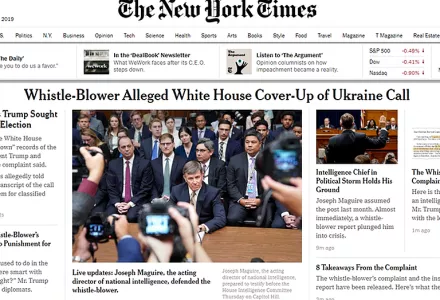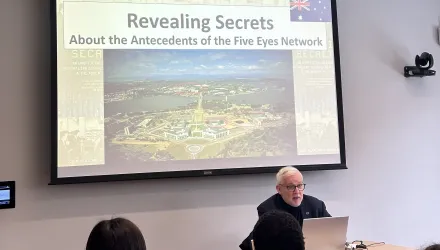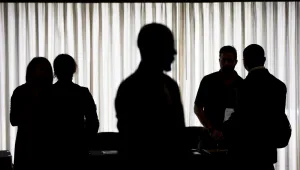Bill Harlow is a writer, consultant and public relations specialist with over thirty years of experience including assignments in some of the toughest communications positions in the U.S. government. He spent seven years as the top spokesman for the Central Intelligence Agency and four years at the White House handling national security media matters for two Presidents. Prior to joining the CIA, Harlow served in the United States Navy, retiring with the rank of Captain. While on active duty he was Assistant White House Press Secretary for Foreign Affairs and National Security during both the Reagan and George H.W. Bush Administrations. He served as chief spokesman for the Secretary of the Navy and in Navy spokesperson positions in the Pentagon, Europe and Asia. He is the co-author of four New York Times bestsellers on intelligence: “At the Center of the Storm” with George Tenet, “Hard Measures” with Jose Rodriguez, “The Great War of Our Time” with Michael Morell and “Enhanced Interrogation” with James Mitchell. Harlow’s novel, “Circle William,” was published by Scribner in 1999. He is also the book editor for “The Cipher Brief.” With former NBC-TV correspondent Fred Francis, in 2008 he formed the firm “15-Seconds” providing media training and crisis communications consulting to the private sector and government agencies.
Suzanne Kelly is CEO & Publisher of The Cipher Brief and most recently served as CNN’s Intelligence Correspondent before spending two years in the private sector. She also worked as an Executive Producer for CNN and as a news anchor at CNN International based in Berlin and Atlanta. In Berlin, she anchored a morning news program that was broadcast live in Europe, the Middle East and Africa and from Atlanta, she anchored a number of world news programs. She covered the NATO campaign in 1999 from Kosovo and Macedonia.
David E. Sanger, adjunct lecturer at the Kennedy School and a senior fellow at the Belfer Center for Science and International Affairs, is a national security correspondent and a senior writer at The New York Times. In a 36-year reporting career for The Times, he has been on three teams that have won Pulitzer Prizes, most recently in 2017 for international reporting. His newest book, “The Perfect Weapon: War, Sabotage and Fear in the Cyber Age,’’ published in 2018, examines the emergence of cyberconflict as the primary way large and small states are competing and undercutting each other, changing the nature of global power.
He is also the author of two previous Times best sellers on foreign policy and national security: “The Inheritance: The World Obama Confronts and the Challenges to American Power,” published in 2009, and “Confront and Conceal: Obama’s Secret Wars and Surprising Use of American Power,” published in 2012. For The Times, Mr. Sanger has served as Tokyo bureau chief, Washington economic correspondent, White House correspondent during the Clinton and Bush administrations, and chief Washington correspondent.
Mr. Sanger spent six years in Tokyo, writing about the emergence of Japan as a major American competitor, and then the country’s humbling recession. He wrote many of the first articles about North Korea’s emerging nuclear weapons program.
Returning to Washington, Mr. Sanger turned to a wide range of diplomatic and national security issues, especially issues of nuclear proliferation and the rise of cyberconflict among nations. In reporting for The Times and “Confront and Conceal,” he revealed the story of Olympic Games, the code name for the most sophisticated cyberattack in history, the American-Israeli effort to sabotage Iran’s nuclear program with the Stuxnet worm. His journalistic pursuit of the origins of Stuxnet became the subject of the documentary “Zero Days,” which made the short list of Academy Award documentaries in 2016. With his Times colleague Bill Broad, he also described, in early 2017, a parallel cybereffort against North Korea.
Mr. Sanger was a leading member of the team that investigated the causes of the Challenger disaster in 1986, which was awarded a Pulitzer in national reporting the following year. A second Pulitzer, in 1999, was awarded to a team that investigated the struggles within the Clinton administration over controlling technology exports to China. He has also won the Weintal Prize for diplomatic reporting for his coverage of the Iraq and Korea crises, the Aldo Beckman prize for coverage of the presidency, and, in two separate years, the Merriman Smith Memorial Award, for coverage of national security issues. “Nuclear Jihad,” the documentary that Mr. Sanger reported for Discovery/Times Television, won the duPont-Columbia Award for its explanation of the workings of the A. Q. Khan nuclear proliferation network. That coverage was also a finalist for a Pulitzer.




